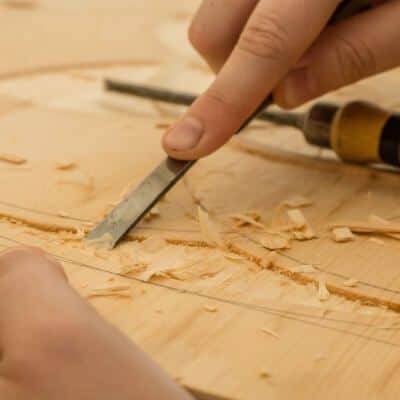Episode 28 | December 19, 2018
San Antonio-based Michael Sauder of Woodcraft Texas on building a second entrepreneurial career from his woodworking hobby and how he runs his business with an eye toward the future using solar power.
Woodworking Business from a Hobby
Michael Sauder’s career has been a series of unexpected turns. He went to college expecting to get a geology degree and work with his dad in the Texas oil and gas fields, then pivoted into the travel industry in Leavenworth, Kansas. Michael went on to establish 18 thriving travel agencies around San Antonio for almost three decades, managing a business of over 100 people that brought in almost $50 million in annual revenue.
His retirement was similarly unpredictable. As many retirees do, he took to hobbies including woodworking and golf. Then the national brand Woodcraft announced they were offering their five Texas stores for sale in a franchise agreement, but only to a single buyer. Michael decided it was a challenge he could rise to, saying that it “turns out it was a whole lot easier to run 5 woodworking stores than it was running 18 travel agencies.”
In the end, the roles have not been so different. “I consider myself an entrepreneur and a manager,” says Michael. “You go out and you find people who are experts in each of the areas that you need to fill in and then guide them.”
Wood Workshop Builds Customer Base
Michael has not only taken ownership of the Texas Woodcraft locations, he has built them into a flourishing hub of activity for a new generation of hobbyists and craftsmen. Even with the growth of e-commerce, there is nothing like an in-person experience at a store when it comes to woodworking. Michael says that his customers “like to come in and feel it, look at it, compare it, if they’re buying a machine, to what another machine looks like and what its features and benefits are. They want to feel and touch.”
While most of his customers tend to be folks over the age of 55 who took woodshop in high school, Woodcraft stores are easily accessible to newbies as well. “We always are there to help or offer advice,” explains Michael.
Free beginner and intermediate level classes take place almost every day of the week, with both daytime and evening workshops available. To find the current schedule, go to the Woodcraft store locater and select the location closest to you. You can select one of the most popular classes, how to turn a pin, or anything else that suits your fancy.
If you enjoy woodworking, you can also work part-time at Woodcraft. Michael offers opportunities to work a couple days a week, enabling you to spend more time enjoying your hobby and learning more about it.
Local Small Business Believes in Solar and Sustainability
Michael started looking at solar power as another way to set himself and his business up for long-term future success, installing solar panels on the two stores where he owns the building as well as his home. “I looked at it as an investment in the future.” He cites both the fact that it was a smart financial move and the environmental benefits, specifically “to use that free sunshine, a natural resource that comes back every day, instead of using gas, that you’ve got to pay for, or coal.”
Challenges of a Small Business in Adopting Commercial Solar
Aside from the fact that he leases four of his buildings, the primary challenge Michael discovered for solar across his business is the patchwork of utilities and regulatory environment facing his six locations in Houston (two stores), Plano and Hurst in the Dallas Fort Worth metroplex, Austin, and San Antonio. Michael says that the San Antonio municipal utility was the most favorable to solar power. “It has the lowest rates, and when we put in solar it offered the best rebates, which helps tremendously in making the decision to put in solar. And then Austin’s behind that and then the other four are just outrageous.”
Value of Solar for Local Small Business
The proof of the value of solar is in the results. The Woodcraft San Antonio location is a 10,500 square foot temperature-controlled building. “In 2017, our total electric bill was $3,600 for the whole year,” Michael says. “People don’t believe me when I tell them.”
Sustainability is an important consideration when it comes to woodworking’s source materials, as well. As Michael points out, paraphrasing Woodcraft’s motto, “If you don’t have wood when you’re trying to be a woodworker, it’s just working.” A couple of the big forestry companies have developed rapidly growing trees mainly in South American or African forests, although those are generally not as pretty to work with. This presents a challenge for the industry, as some exotic woods such as Bubinga are already in short supply. As is the case with many challenges facing us today, innovation in woodworking may yet be the answer to greater sustainability.
LINKS AND RESOURCES
- Woodcraft
- San Antonio retiree buys Texas’ Woodcraft stores (San Antonio Business Journal, Feb. 2013)
- Java Gel on Pinterest
- Buy Java Gel from Woodcraft
- Bubinga wood
- Sustainable Hardwoods
- Tips for Sustainable Woodworking
Tun in for our next episode with Senator Drew Springer of Texas House of Representatives in which we talk about the impact of alternative energy on the communities he represents in Texas House District 68.
For more great interviews with Texas business leaders who are using 21st century tools to reduce their environmental footprint and improve their profitability make sure to check tune in Texas Energy Lab Radio each week!
